The Group of Eight (G8) refers to the group of eight highly industrialized nations — France, Germany, Italy, the United Kingdom, Japan, the United States, Canada, and Russia—that hold an annual meeting to foster consensus on global issues like economic growth and crisis management, global security, energy, and terrorism. The forum enables presidents and prime ministers, as well as their finance and foreign ministers, to candidly discuss pressing international issues. Its small and static membership, however, excludes emerging powers from important talks concerning the global economy and international security, and as an informal grouping, states have little leverage over other members with which to secure compliance on agreements beyond imposing reputational costs.
When the group was formed in 1975, it was known as the G6, comprising France, West Germany, Italy, Japan, the United Kingdom, and the United States. The G6 was intended to provide major industrial powers of the noncommunist world a venue in which to address economic concerns, which at the time included inflation and the recession sparked by the oil crisis of the 1970s. Cold War politics invariably entered the group’s agenda.
Russia’s agenda for the 2014 summit includes “fighting the drug menace, combating terrorism and extremism, settling regional conflicts, safeguarding people’s health, and establishing a global management system to address risks associated with natural and man-made disasters.”
The G8’s exclusiveness is the focus of much criticism, but its small size and the relative like-mindedness of its members is also the source of its efficacy. The value of the G8, says Harvard professor and former chair of the National Intelligence Council Joseph Nye, is that it “gets the bureaucracies to focus.” Likewise, CFR’s Stewart Patrick has written that the G8 functions as a “steering group for the ’West.’”
Criticism of the G8 extends well beyond Russia’s membership. With the G8’s persistent focus on trade liberalization, summits are reliably targets of antiglobalization protests. Other critics argue that the exclusivity of the group results in a focus on the needs of industrial at the expense of developing countries.
Brookings’ Bruce D. Jones, Richard Gowan, and Emily O’Brien observe: “The persistence of the G8 has been cited as a stimulus for the BRICS (Brazil, Russia, India, China, and South Africa) countries to form an alternative caucus of their own.” However, CFR’s Patrick argues, “It’s not self-evident that the West’s decision to wind up the G8 would somehow persuade emerging powers to give up their own flexible coalitions of interest.”
“The G8 no longer accommodates the world’s biggest or most dynamic economies; the G8 no longer accounts for all the world’s nuclear weapons; the G8 doesn’t speak for any particular identity or values—with Russia in the fold, it’s hardly a champion of democracy,” Time’s Ishaan Tharoor wrote in 2011. He is among the critics who believe that, like the UN Security Council, the G8 reflects an outdated, Western-centric view of the global distribution of power.
The absence of emerging markets in the G8—particularly China and India, given their economic heft—is notable. China and India belong to the G20, a forum of finance ministers and central bank governors focused on managing the global economy (heads of states began meeting during the financial crisis). The G20 includes nineteen of the world’s largest economies in addition to the European Union. Compared to such institutions as the G8 and the UN Security Council, the G20, which first met in 1999, is unique in “bringing together the established and emerging powers as peers” (PDF).
The G20, a Brookings report notes, “has eclipsed [the G8] as the primary forum for financial diplomacy” (PDF), a sentiment echoed by Obama, who called the G20 the “premier forum for global economic coordination.” It remains to be seen, however, whether the G20 can achieve similar success in the realm of security cooperation. Mexico hosted the first meeting of G20 foreign ministers in February 2012. While the informal meeting may set the stage for future security-related talks among the larger group, the United States is among the participants opposed to the G20 expanding its purview into diplomacy.
In 2005, British prime minister Tony Blair invited five leading emerging markets—Brazil, China, India, Mexico, and South Africa—to participate in the summit, but the “G8+5,” as it was called, was short-lived. “It began to be seen as patronizing and insulting that they weren’t actually there full-time,” Patrick says. While the number of participants in the G20 has ballooned, making it “very difficult to have a conversation, much less a meaningful, unscripted conversation,” Patrick suggests that a G13 might still be small enough to benefit from the intimacy that makes the G8 unique while bringing emerging markets into all-important discussions of global governance.













![CY_GATE_2019_PHYSICAL_SPECTROSCOPY_[ELECTRONIC_BASIC]_All IN ONE_[Short_Trick]_2018-19_PART_1ST - Videos](https://trends.edugorilla.com/wp-content/uploads/sites/8/2018/08/cy_gate_2019_physical_spectroscopy_electronic_basic_all-in-one_short_trick_2018-19_part_1st-218x150.jpg)



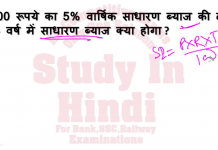


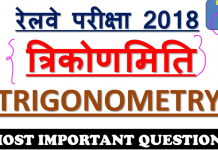
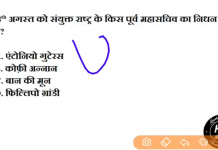
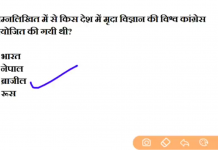
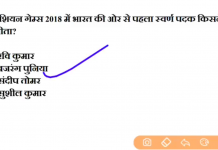








![24 August 2018 – The Indian Express Newspaper Analysis हिंदी में – [UPSC/SSC/IBPS] Current affairs - Videos](https://trends.edugorilla.com/wp-content/uploads/sites/8/2018/08/a520-218x150.png)



